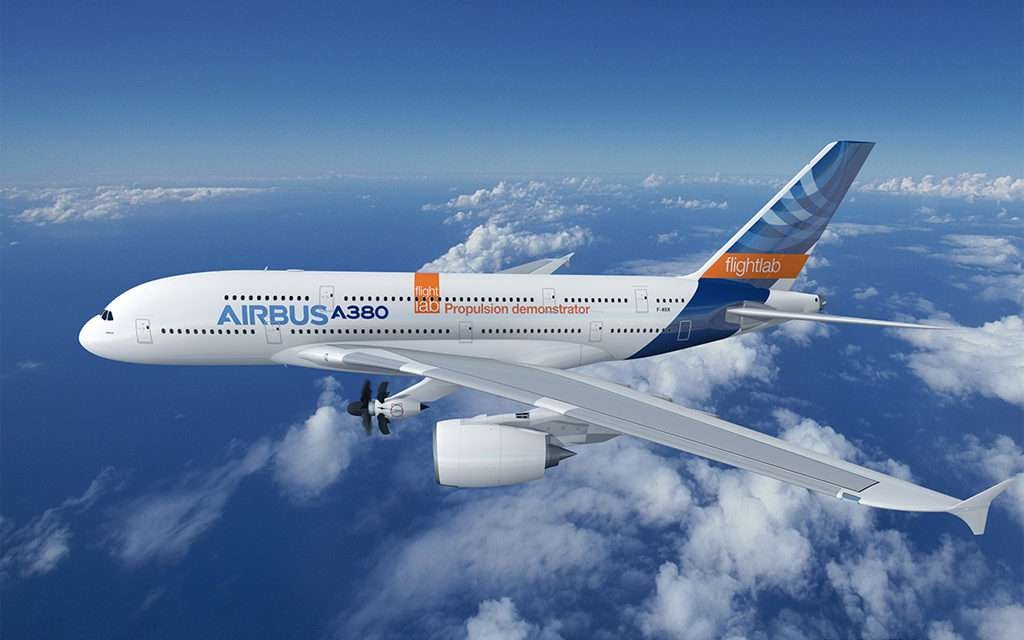Recall the Airbus A380? The double-decker behemoth that graced the skies with its majestic presence? For a while, it seemed like this aviation titan was headed for extinction, a victim of high operating costs and dwindling demand.
 |
| An Airbus A380 airplane in midflight. |
Recall the Airbus A380? The double-decker behemoth that graced the skies with its majestic presence? For a while, it seemed like this aviation titan was headed for extinction, a victim of high operating costs and dwindling demand. But in a surprising turn of events, the A380 is experiencing a second wind, with airlines rediscovering its unique value proposition and giving it a new lease on life.
Why the A380 Fell Out of Favor
The A380's story is one of both triumph and tribulation. Launched in 2005 with much fanfare, it was hailed as a game-changer in the aviation industry. Its spacious double-decker cabin offered airlines unparalleled passenger capacity and the potential for luxurious amenities. First-class suites with showers, onboard bars, and even duty-free shops became a reality in the A380's opulent upper deck.
However, the A380's fortunes took a turn for the worse in the late 2000s. The rise of fuel costs and the economic downturn made its high operating expenses a major drawback. Additionally, the point-to-point route model favored by low-cost carriers proved to be a better fit for smaller, more fuel-efficient aircraft. As a result, orders for the A380 dwindled, and in 2018, Airbus announced it would stop production after delivering the final aircraft in 2027.
The Unexpected Resurgence
But just as the curtain seemed to be falling on the A380's act, a plot twist emerged. The COVID-19 pandemic, with its emphasis on social distancing and reduced passenger demand, initially seemed like the final nail in the coffin. However, as travel restrictions eased and the skies reopened, airlines began to see the A380 in a new light.
Here's why the A380 is finding favor again
Passenger Capacity
With its ability to carry up to 853 passengers, the A380 offers airlines a way to meet the pent-up demand for air travel while adhering to social distancing norms. This is particularly crucial on busy long-haul routes where smaller aircraft would struggle to accommodate the surge in passenger numbers.
Cargo Capacity
The A380's vast cargo hold provides airlines with significant cargo-carrying capacity, a major advantage in the booming air cargo market. This is especially beneficial for airlines operating on routes with high demand for both passengers and freight.
Passenger Comfort
The A380's spacious cabin and quieter engines offer passengers a more comfortable travel experience. This is a major selling point for airlines looking to attract premium passengers willing to pay for a touch of luxury.
Second-hand Market
With Airbus stopping production, the A380s already in operation have become valuable assets. Airlines can acquire these aircraft at a significantly lower price than the original manufacturing cost, making them a cost-effective solution for fleet expansion.
Several airlines are leading the charge in the A380's revival
Emirates: The Dubai-based carrier remains the largest A380 operator, with over 110 aircraft in its fleet. They have invested heavily in refurbishing their A380s, adding new first-class suites and onboard lounges.
Singapore Airlines: The airline has reintroduced its A380s on select routes, citing strong demand from premium passengers. They are also exploring ways to further enhance the passenger experience onboard the A380.
Qatar Airways: The national carrier of Qatar is looking to expand its A380 fleet, recognizing its potential on high-traffic routes.
The A380's second act is still unfolding, and its long-term success remains to be seen. However, its recent resurgence gives hope for the future of this aviation icon. With airlines increasingly focused on passenger comfort, cargo capacity, and cost-effectiveness, the A380's unique strengths could position it for a sustained comeback.
Challenges Remain
Despite the positive signs, the A380 still faces challenges. Finding spare parts and maintaining these complex aircraft could become increasingly difficult as the number of A380s in operation dwindles. Additionally, the environmental impact of these large jets remains a concern, although airlines are exploring ways to make them more fuel-efficient.
The Airbus A380's story is a testament to the adaptability and resilience of the aviation industry. Just when it seemed destined for the scrapyard, the A380 has found a new purpose, offering airlines a unique solution in a rapidly evolving air travel industry.
While its future isn't entirely certain, the A380 has proven its value amidst unexpected market shifts. Its capacity, comfort, and cargo capabilities could appeal to airlines navigating the post-pandemic world, where passenger preferences and industry priorities might favor these attributes.
However, the long-term equation remains complex. The cost of maintenance and potential environmental concerns could still overshadow its advantages.
